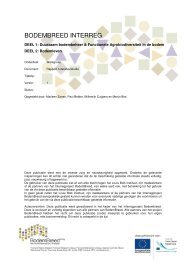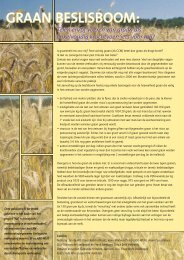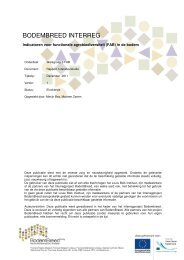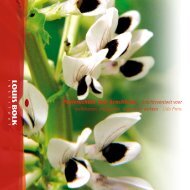Respiratory System Disorders and Therapy From a New - Louis Bolk ...
Respiratory System Disorders and Therapy From a New - Louis Bolk ...
Respiratory System Disorders and Therapy From a New - Louis Bolk ...
Create successful ePaper yourself
Turn your PDF publications into a flip-book with our unique Google optimized e-Paper software.
systematically noted <strong>and</strong> which can lead the prescriber to the most ‘similar’ medication.<br />
This repertory follows a head to foot blueprint with respect to its arrangement. Nowadays,<br />
computer programs help the physician to ‘repertorize’ the symptoms <strong>and</strong> to select the<br />
most fitting medication (Bönninghausen 2002).<br />
In modern homeopathy, we have a number of different uses of the basic principles.<br />
a. Clinical homeopathy. The medication is chosen based on a group of symptoms or a<br />
disease, for example, a medication for the flu. The characteristics of the complaint<br />
determine which medication is suitable.<br />
b. Composite homeopathy. Various medications are combined in one preparation,<br />
for application to a specific complaint or illness. It is, therefore, a form of clinical<br />
homeopathy. This method is often used in over-the-counter medications.<br />
c. Isopathy. In order to heal the disease, a medication is given that is made from precisely<br />
the same substance that has also caused the disease: for example, pollen in potentiated<br />
form for the treatment of hay fever. Therefore, it is not the same type of symptoms that<br />
determines the choice of medication, but the same type of substance that caused the<br />
disease in the first place.<br />
d. Classical, individual homeopathy. A medication is chosen based on the total picture<br />
of mental/emotional <strong>and</strong> physical characteristics, reaction patterns <strong>and</strong> the patient’s<br />
history. This method is extremely well suited to chronic complaints. An extensive history<br />
is necessary.<br />
Regular Medicine<br />
The method used in regular medical practice is based on perception, empirical research of<br />
the observed data, <strong>and</strong> data analysis. The human organism is studied in its appearance<br />
<strong>and</strong> functions, <strong>and</strong> understood out of the analytically gained data. This results in highly<br />
detailed <strong>and</strong> specific information about the human organism <strong>and</strong> disease.<br />
When possible, clinical research is directed to epidemiological studies <strong>and</strong> reviews of<br />
large numbers of patients to provide evidence of effectiveness for clinical practice. Recent<br />
estimates put the percentage of epidemiologically researched treatments in regular<br />
medical practice at approximately 25% (Smulders 2008).<br />
<strong>Bolk</strong>’s Companions RespiRatoRy system DisoRDeRs anD theRapy - 111





